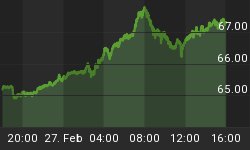When Federal Reserve Chairman Jerome Powell speaks, investors lose money - and those losses have totaled some $1.5 trillion so far, according to JPMorgan Chase.

(Click to enlarge)
Whether it’s a coincidence or not, JPMorgan says this chart tells all:
“While we acknowledge that it is not possible to attribute the market impact of each speech with certainty, simple math indicates that ~$1.5 trillion of U.S. equity market value was lost this year following these speeches,” JPMorgan wrote in a Wednesday research note.
On average, JPMorgan analysts say, the three news conferences hosted by Powell to clarify Fed rate-setting meetings have heralded an average 0.44 percentage point drop in the S&P 500, with a slightly lower drop each time Powell has taken up the mic on other occasions.
The market might not like Powell, but it’s got little room to complain, after all.
Other than investors’ immediate post-speech losses, the S&P 500 has managed to gain 8.92 percent in the year to date.

(Click to enlarge)
And in September, the S&P 500 posted its best quarter since 2013, gaining 7.2 percent. The Nasdaq Composite also saw a 7.1-percent quarterly gain in its best quarter since Q1 2017, and the Dow jumped 9.3 percent. Related: Does Apple Still Have A 20% Upside?
So it’s been a stellar year despite Powell and the Fed’s rate hikes, and despite the fact that Trump has also been lashing out at the new Chairman.
Indeed, it’s been a challenging relationship, with Trump overstepping his office twice this summer to openly criticize the Fed Chairman after interest rate hikes. (If it sounds familiar, it is: This is the same thing Erdogan has done in Turkey, only with a bit more emotional drama and a view that interest-rate hikes are inherently evil).
It’s overstepping because the Federal Reserve is the only bastion of independence, and investors lose confidence at the slightest hint that the bank is in any way beholden to the White House. Again, this is the same thing that has happened in Turkey, where the Central Bank’s independence has come into question under Erdogan, who appointed his son-in-law as Finance Minister.
Powell, however, is unmoved and he’s “ignoring” Trump—and politicians, in general.
“My focus is on controlling the controllable,” The Atlantic quoted Powell as saying Wednesday at The Atlantic Festival in Washington. “We control what we do at the Fed.”
For now, Powell foresees smooth sailing, with a steadily growing economy, record low unemployment and inflation under control. But there’s always the recession bogeyman hovering in the wings. Though Powell concedes that the good times will have to come to an end at some point, he told the Atlantic: “Not every business cycle is going to last forever, but no reason to believe this cycle can’t go on for quite some time, effectively indefinitely.”
Related: The Uranium Alternative Flying Under Investors' Radar
Back to JPMorgan, its analysts view the negative market response to Powell’s speeches as an overriding fear that the Fed might make a wrong move in trying to normalize interest rates without rocking the boat of an economy that is moving along very well.
Specifically, the equity market likely implies that the Fed is underestimating various risks, and hence is increasing the implied probability of the Fed committing a policy error in the future. A higher probability of a policy error translates into lower equity prices on the news.
Basically, what JPMorgan is saying is that while we’re not there yet, once “fundamental investors start questioning the cycle, a technically driven selloff could be more violent and more likely to deliver a knockout punch to the economic cycle. The new microstructure of financial markets would not leave enough time for the Fed to react”.
By Fred Dunkley for Safehaven.com
More Top Reads From Safehaven.com:
















